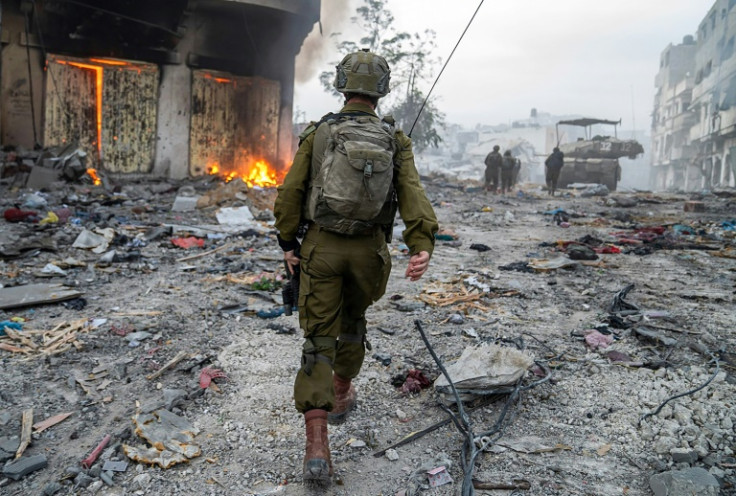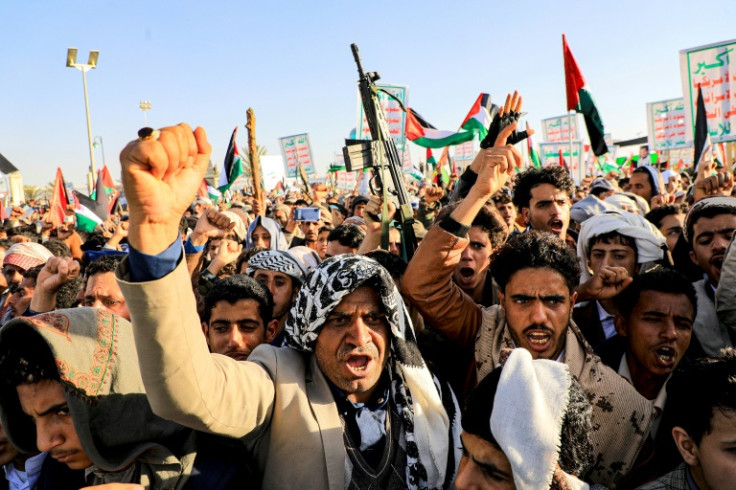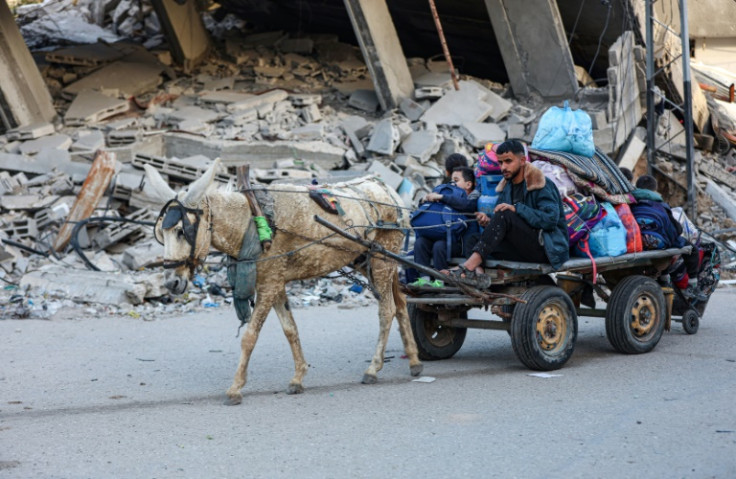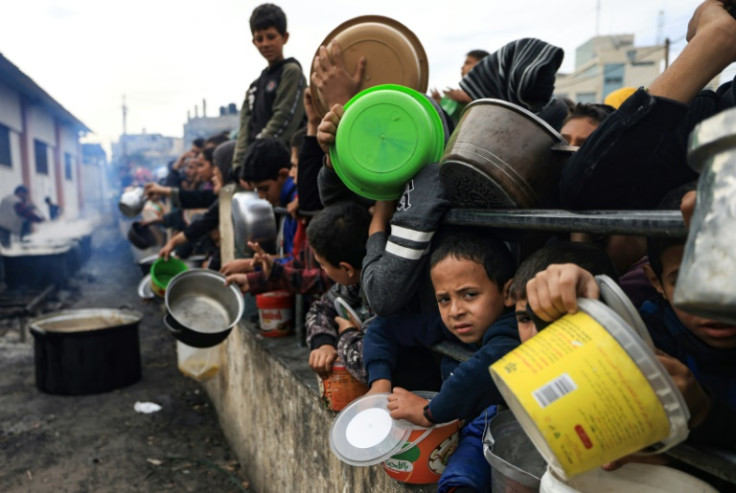Israel Strikes Gaza After UN Calls For More Aid But Not Ceasefire

Palestinians wept and prayed for their dead on Saturday after fresh Israeli strikes followed a UN Security Council resolution that demanded more aid be allowed into Gaza but did not call for an immediate halt to fighting.
Clouds of grey and black smoke rose over Khan Yunis city in the south after strikes in the morning, and live AFPTV images showed black smoke drifting over the territory's north.
The health ministry in the Hamas-run Gaza Strip reported 18 people killed in a strike on a house at the central Nuseirat refugee camp, and said other targets were hit up and down the Gaza Strip.
The bombardments came after the Security Council approved a resolution demanding "immediate, safe and unhindered" deliveries of life-saving aid be rushed to Gaza "at scale".
It also called for creation of "conditions for a sustainable cessation of hostilities," but did not seek an immediate end to combat.
Members had wrangled for days over the wording.
At Washington's insistence, they toned down some provisions and avoided calling for a ceasefire that would stop the war, which began with unprecedented attacks 11 weeks ago by Hamas militants on civilians in southern Israel.
It is still unclear what, if any, impact the vote will have on the ground where Gazans have been forced into crowded shelters or tents, struggling to find food, fuel, water and medical care.
UN Secretary-General Antonio Guterres said a "humanitarian ceasefire" is the only way for aid "to be effectively delivered".
The issue is not the number of aid trucks, he said, but "the way Israel is conducting this offensive is creating massive obstacles" to aid distribution.
Immediately after the UN vote, Israel again vowed to fight on until Hamas is "eliminated" and hostages are freed.
"Israel will continue the war in Gaza," said Foreign Minister Eli Cohen, insisting it was legal and just.
Fighting began on October 7 when gunmen from the Islamist Hamas movement broke through Gaza's border and killed about 1,140 people in Israel, mostly civilians, according to an AFP tally based on Israeli figures.
Palestinian militants also abducted about 250 people, 129 of whom Israel says remain in Gaza.
Vowing to destroy Hamas, Israel launched a relentless bombardment and ground invasion of Gaza, where 20,057 people have been killed, mostly women and children, according to the Hamas government which has ruled Gaza since 2007.
At Nasser Hospital in Khan Yunis, men gently led a weeping woman who had seen the bodies of relatives. A man crouched down in tears, his hand resting on a black body bag. Outside, others prayed before another corpse.
"What is going on in the corridors of the UN Security Council is nothing more than theatre and farce," Rafat al-Aydi said, standing before the bodies which lay under a bush of bright red flowers. "This is a genocide."
Allies, including the United States which provides Israel with billions of dollars in military aid, have increasingly pressured Israel to avoid civilian casualties.
Israel insists Hamas is to blame for mass civilian deaths, accusing the militants of using innocent Palestinians as "human shields" and operating out of hospitals, schools and UN facilities.
Photos approved for release by Israel's army show soldiers moving in a Gaza wasteland of rubble where fires burn.
The UN estimates the fighting has displaced 1.9 million of Gaza's 2.4 million population.
World Health Organization chief Tedros Adhanom Ghebreyesus said a majority of those uprooted from their homes were now going "entire days and nights without eating", and "famine is looming".
A one-week truce that Qatar helped mediate, with support from Egypt and the United States, ended on December 1. It saw 80 Israeli hostages released from Gaza captivity in exchange for 240 Palestinian prisoners.
Israel has repeatedly told Palestinians to make their way to areas in the tiny territory it says are safe, but even when they do residents say they still have been bombarded.
Many Gazans have been forced to move multiple times.
On Friday thousands fled central Gaza after an army evacuation order. It warned residents of Bureij, a refugee camp established about 70 years ago, to move "for their own security" towards Deir al-Balah city further south.
Donkey carts creaked with their belongings. Families pushed babies in prams and led elderly relatives through the crowd. They packed winter blankets for the road ahead.
The UN agency for Palestinian refugees, UNRWA, said the latest evacuation order would affect more than 150,000 people.
"The Israeli army just orders people to move into areas where there are ongoing air strikes," Thomas White, UNRWA's Gaza director, wrote on social media.
At Deir al-Balah's Al-Aqsa Hospital ambulances arrived with more bodies and wounded after an overnight strike.
Friday's UN resolution only passed thanks to US and Russian abstentions.
It requests the appointment of a UN humanitarian coordinator to oversee and verify third-country aid to Gaza. But Israel would retain operational oversight of aid deliveries.
Hamas described the resolution as "an insufficient measure that does not respond to the catastrophic situation created by the Zionist (Israeli) war machine".
A new attack on shipping Saturday added to fears of regional escalation from the Israel-Hamas war.
Maritime agencies said a drone strike damaged a merchant ship in waters off Veraval, India. There was no immediate claim of responsibility.
Missiles from Yemen's Iran-backed Huthi rebels have already disrupted Red Sea shipping.
US National Security Council spokeswoman Adrienne Watson said Iran "was deeply involved in planning the operations against commercial vessels in the Red Sea".
There have also been regular exchanges of fire across the Israel-Lebanon border, between Israeli forces and Lebanon's powerful Hezbollah movement which, like Hamas, is backed by Iran.





© Copyright AFP {{Year}}. All rights reserved.





















